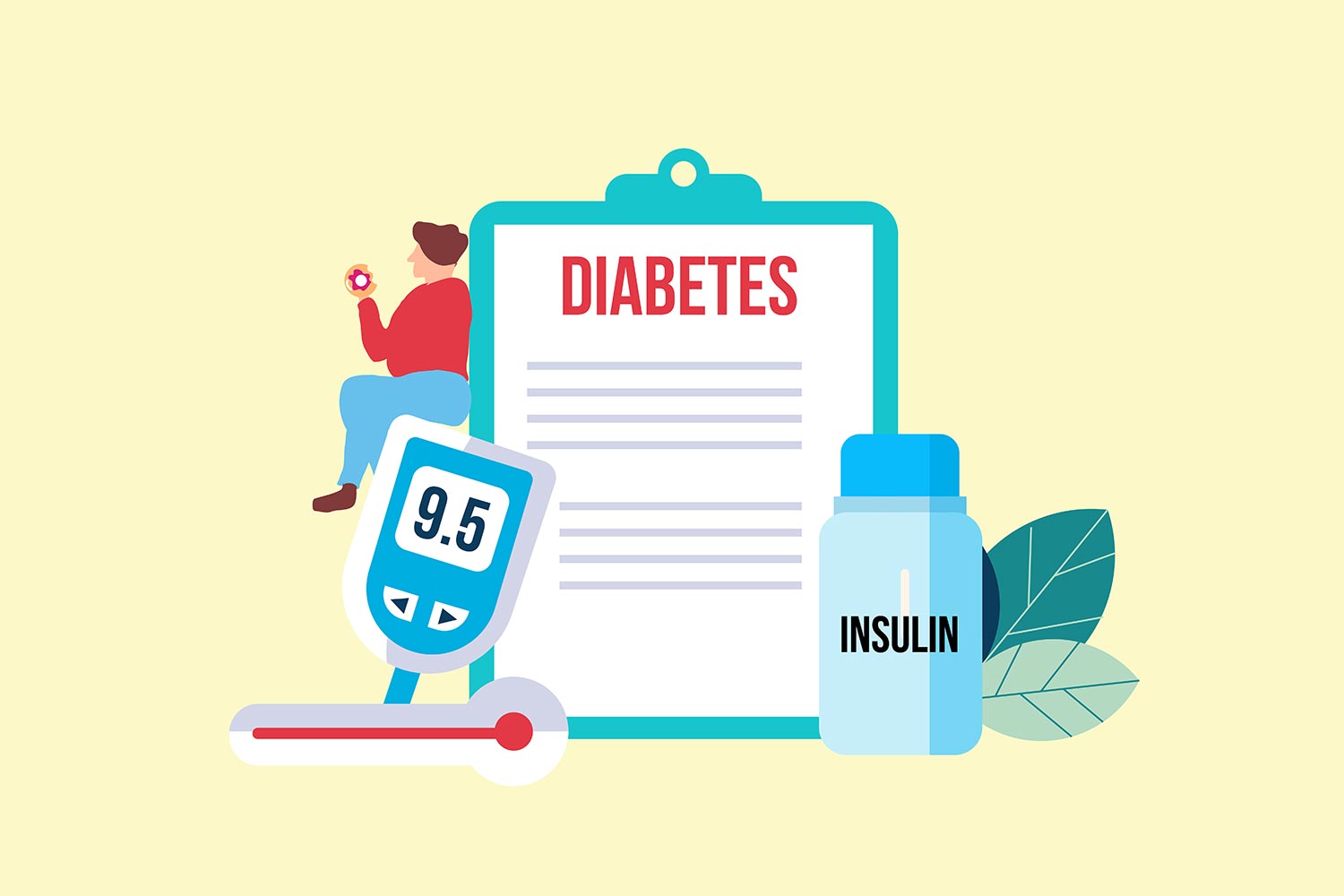Table of contents
Diabetes is a global health issue affecting millions of people worldwide. The World Health Organization (WHO) estimates that over 422 million people suffer from diabetes, making it a critical topic for public awareness. Understanding diabetes, its various types, symptoms, and methods of diagnosis can help individuals manage the condition effectively and reduce the risk of complications.
Types of Diabetes
Type 1 Diabetes
Type 1 diabetes is a disorder in which the immune system erroneously targets and destroys the insulin-producing beta cells in the pancreas. While it frequently emerges during childhood or adolescence, it can manifest at any age. The precise cause of Type 1 diabetes remains unknown, though a combination of genetic predisposition and environmental triggers, such as viral infections, are believed to contribute to its development. This form of diabetes represents about 5-10% of all diabetes cases.
Individuals with Type 1 diabetes must continuously monitor their blood sugar levels and manage their diet and physical activity to maintain optimal glucose control. Innovations in insulin delivery, including insulin pumps and continuous glucose monitors, have significantly enhanced the management of Type 1 diabetes, making it easier for patients to maintain their health and well-being.
Type 2 Diabetes
Type 2 diabetes is the most prevalent form, accounting for about 90-95% of all diabetes cases. While it generally develops in adults over the age of 45, it is increasingly being diagnosed in younger individuals due to the rising incidence of obesity. In Type 2 diabetes, the body either resists the effects of insulin or does not produce enough insulin to maintain normal glucose levels. Contributing factors include genetic predisposition, obesity, lack of physical activity, and poor dietary habits.
Managing Type 2 diabetes typically involves making significant lifestyle changes, such as following a healthy diet, increasing physical activity, and losing weight. Medications like metformin and other oral drugs are often prescribed to help regulate blood sugar levels. In some instances, insulin therapy may also be required to achieve proper glucose control.
Gestational Diabetes
Gestational diabetes develops during pregnancy, affecting approximately 2-10% of pregnant women in the United States. It is caused by hormonal changes that lead to insulin resistance. Although gestational diabetes often resolves after the baby is born, women who have had it are at an increased risk of developing Type 2 diabetes later in life.
Managing gestational diabetes typically involves following a balanced diet, engaging in regular physical activity, and monitoring blood sugar levels closely. In some cases, insulin or other medications may be necessary to maintain appropriate glucose levels and safeguard the health of both mother and baby.
Other Types of Diabetes
There are other, less common forms of diabetes:
- LADA (Latent Autoimmune Diabetes in Adults): Often misdiagnosed as Type 2, LADA progresses more slowly and occurs in adults. It shares characteristics with both Type 1 and Type 2 diabetes.
- MODY (Maturity Onset Diabetes of the Young): MODY is a rare, inherited type of diabetes that usually develops during adolescence or early adulthood. It results from mutations in a single gene and has several subtypes, each with unique features and treatment needs.
- Secondary Diabetes: This can result from other medical conditions, such as pancreatic disease, or from medications like steroids. Conditions like Cushing’s syndrome or pancreatitis can lead to secondary diabetes.
Managing diabetes often requires lifelong commitment and a multidisciplinary approach. Patients may need to consult various specialists and adopt a comprehensive care plan that includes dieticians, endocrinologists, and diabetes educators. Access to affordable medications and supplies is also crucial, and patients can buy Canadian insulin to manage costs effectively.
Symptoms of Diabetes
Common Symptoms Across All Types
- Frequent urination: Elevated blood sugar levels cause the kidneys to work overtime to filter and absorb the excess glucose, resulting in increased urination.
- Excessive thirst: The dehydration caused by frequent urination leads to a persistent feeling of thirst.
- Extreme hunger: When insulin is insufficient, or cells resist insulin, muscles and organs do not receive the necessary energy, resulting in intense hunger.
- Unexplained weight loss: Despite increased food intake, the body uses fat and muscle for energy, leading to weight loss.
- Fatigue: When cells lack sufficient glucose, it can lead to feelings of tiredness and lethargy.
- Blurred vision: High blood sugar levels can cause swelling in the eye’s lens, impacting vision.
Diagnosing Diabetes
Doctors will ask about your symptoms, family history, and any risk factors you might have. The physical exam helps to rule out other potential causes of the symptoms.
Regular monitoring is crucial for managing diabetes effectively. Follow-up tests, such as periodic A1C and daily blood sugar monitoring, help track the condition and adjust treatment plans accordingly. Continuous glucose monitors (CGMs) and insulin pumps have advanced diabetes care, providing real-time glucose data and reducing the need for frequent finger-prick tests.
Monitoring also includes checking for complications such as diabetic retinopathy (eye damage), nephropathy (kidney damage), and neuropathy (nerve damage). Regular visits to healthcare providers, including endocrinologists, ophthalmologists, and podiatrists, are essential for comprehensive diabetes management.
Conclusion
Understanding diabetes is essential for managing and preventing complications associated with the disease. Early detection and proper management can significantly improve quality of life. If you experience any symptoms or are at risk, consult a healthcare provider for evaluation and advice. By staying informed and proactive, individuals with diabetes can lead healthy, fulfilling lives while minimizing the risk of complications.

